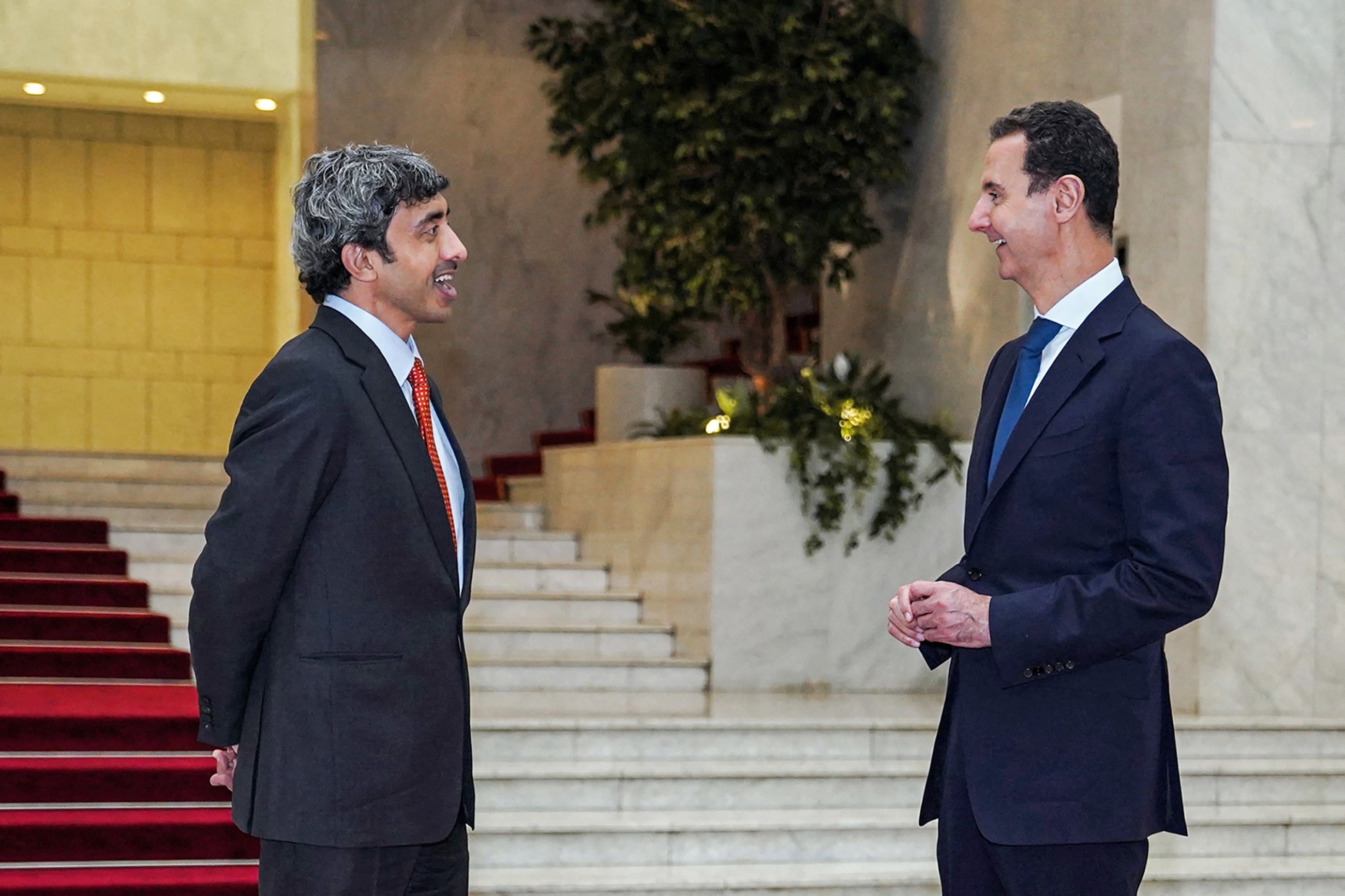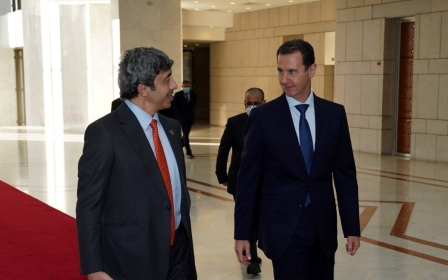Qatari foreign minister calls for end to Arab Syria normalisation

Qatar's foreign minister has called on its neighbours to halt their normalisation plans with Syria, during a joint press conference with the US Secretary of State.
The comments from the Gulf state's foreign minister, Sheikh Mohammed bin Abdulrahman Al-Thani, come shortly after the UAE's foreign minister, Abdullah bin Zayed al-Nahyan, met with Syrian President Bashar al-Assad in Damascus on Tuesday.
"We hope that countries will be discouraged from taking further steps with the Syrian regime," Thani told a joint news conference in Washington with Secretary of State Antony Blinken, who reiterated US concerns about rehabilitating Assad.
Tuesday's meeting between UAE and Syrian leaders was the first since the beginning of Syria's civil war in 2011.
The visit has been widely seen as a sign of regional efforts to end Assad's diplomatic isolation, as Syria grapples with a spiralling economic crisis caused by years of conflict and compounded by Western sanctions.
"President Assad received UAE Foreign Minister Abdullah bin Zayed Al-Nahyan" and an accompanying delegation, Syrian state news agency SANA said.
"They discussed bilateral relations between the two brotherly countries and ways to develop cooperation in different sectors that are of common interest," it added.
The meeting is the latest sign of warming ties between Syria and the UAE after the oil-rich Gulf state severed relations with Damascus in February 2012.
Qatar, which has been one of the staunchest backers of the Syrian opposition, has so far refused to endorse efforts to rehabilitate Assad.
"Qatar's position will remain as it is - we don't see any serious steps by the Assad regime showing his commitment to repair the damage that he made for his own country and for his own people," al-Thani said on Friday. "As long as he's not taking any serious step, we think that changing the position is not a viable option."
Al-Thani, however, also said that other nations had the "sovereign right" to make their own decisions on Syria.
Middle East Eye delivers independent and unrivalled coverage and analysis of the Middle East, North Africa and beyond. To learn more about republishing this content and the associated fees, please fill out this form. More about MEE can be found here.





